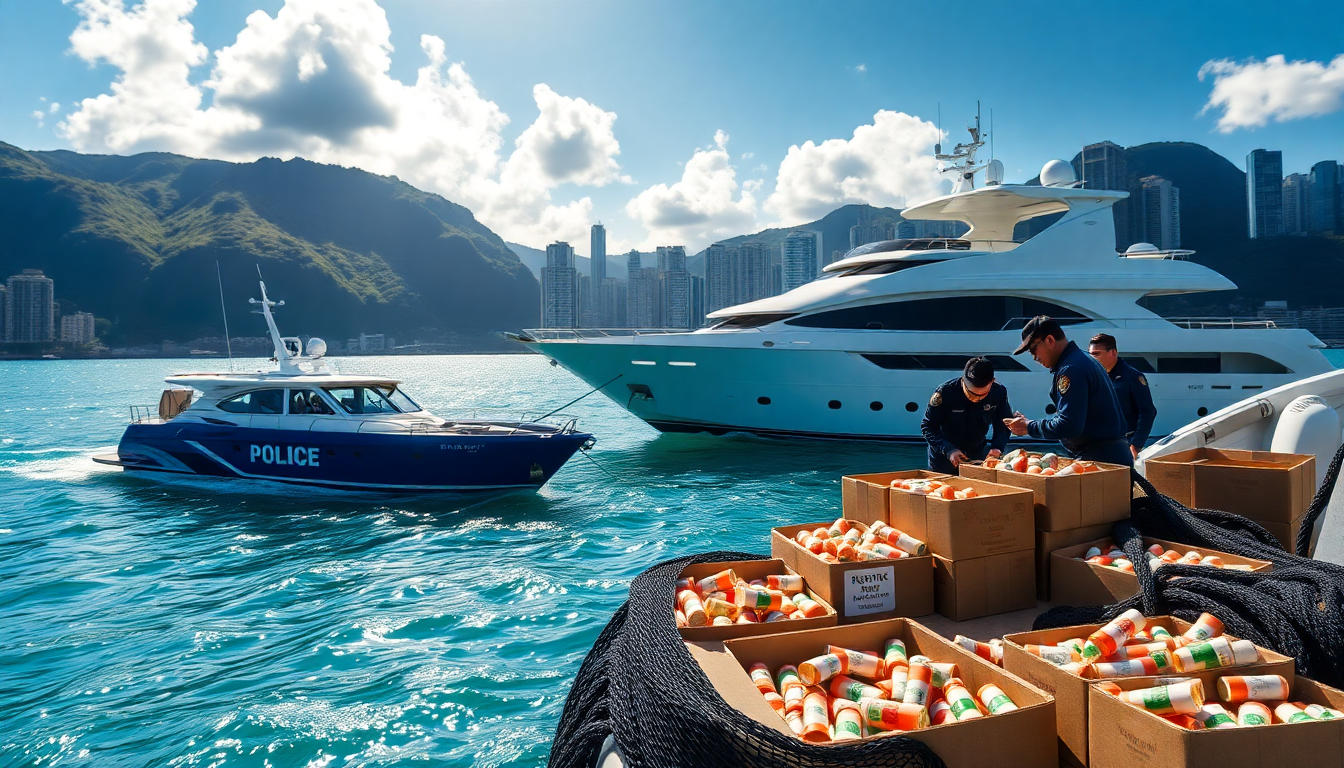Table of Contents
In a bold move to tackle smuggling in its waters, Hong Kong’s marine police and customs have recently launched two major operations aimed at curbing these illicit activities. However, despite their hard work, the culprits managed to slip through their fingers, revealing just how tough the fight against smuggling can be in this bustling region. These operations, which took place around Stanley and the New Territories, resulted in the seizure of illegal cigarettes valued at around HK$13 million (or about US$1.6 million). This highlights the ongoing struggle with smuggling in Hong Kong’s maritime areas.
Details of the Operations
These recent operations were led by the Marine Regional Task Force, teaming up with the marine enforcement division of the Customs and Excise Department. During the first operation, officers spotted two suspicious speedboats closing in on the pier near Tai Tam Bay. What raised eyebrows? These vessels were cruising without navigation lights, prompting concerns about what they were up to. Law enforcement reported seeing individuals hurriedly moving goods between the speedboats and a truck parked on the shore.
Once those involved caught sight of the officers, they wasted no time abandoning ship—quite literally. They hopped back onto their speedboats and sped off into the southern waters of Hong Kong, evading capture. Despite attempts by the marine police to give chase, the speedboats quickly vanished into areas thought to be under mainland Chinese jurisdiction, making it tough to track them down.
The second operation unfolded in a similar fashion, with law enforcement officers confronting another batch of speedboats zipping along at high speeds—again without navigation lights—near Double Island in the northeastern New Territories. These incidents really showcase the boldness of smugglers who continue to exploit Hong Kong’s waterways for their illegal trade.
The Challenges of Maritime Law Enforcement
The fact that these smugglers managed to escape during these operations raises some important questions about how effective current maritime policing strategies really are. The use of fast boats without navigation lights suggests that these smugglers are not only quick on their feet but also have a solid understanding of the maritime landscape and its challenges. As we’ve seen, these criminals are equipped with speedy vessels and likely have inside knowledge about law enforcement tactics and the geography of the waters.
Additionally, being so close to mainland China complicates enforcement efforts. The quick getaway into Chinese waters brings up legal jurisdiction issues. This highlights the pressing need for better collaboration between Hong Kong and mainland law enforcement agencies if they want to effectively tackle smuggling.
While these recent operations led to significant seizures, the failure to apprehend suspects serves as a reminder of the ongoing battle between law enforcement and smugglers. The tenacity of these criminal networks means that law enforcement will need to continuously adapt and devise new strategies to stay one step ahead of the evolving tactics used by smugglers.
Looking Ahead: Strategies for Improvement
Given these challenges, it’s clear that Hong Kong’s marine police and customs need to rethink their strategies for combating maritime smuggling. Sharing intelligence and resources with mainland authorities could significantly boost the effectiveness of their operations and lead to more coordinated responses to smuggling activities.
Moreover, investing in cutting-edge surveillance technology—think drones and radar systems—could provide better situational awareness and help track suspicious vessels before they can make a getaway. Enhancing training for officers on the water will also be crucial in improving their ability to respond quickly to emerging threats.
Ultimately, while the recent operations demonstrate a strong commitment to tackling smuggling, the road ahead will require innovation, collaboration, and a proactive approach against those looking to exploit Hong Kong’s waters. Are we ready to take on this challenge together?


